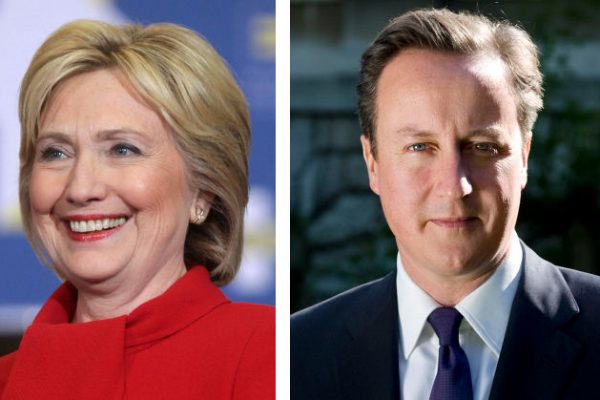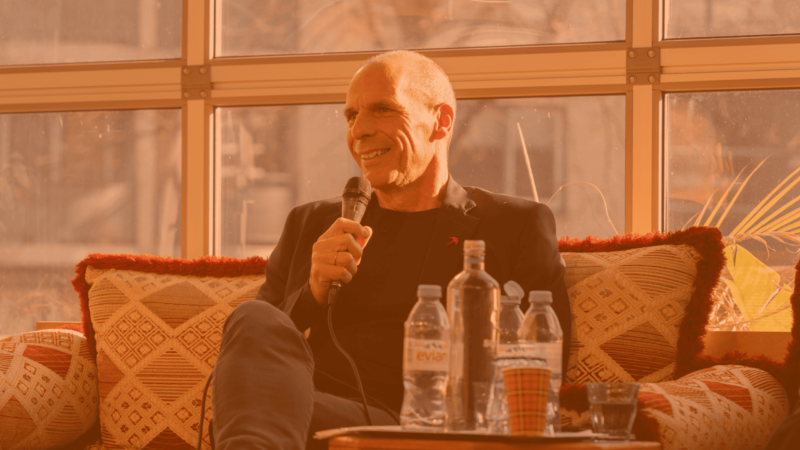Trump’s election is the second time in a few months that a vote has left the establishment confused and scared in its wake. The first such vote was Brexit of course. Both outcomes had seemed impossible. Both were in fact own goals, politicians wishing to hurt the opponent and instead hurting themselves.
In the case of Brexit, David Cameron wanted to solidify his leadership by having the people reject leaving the EU. He inflated the UK’s pre-existing Euroscepticism, demanded concessions from Brussels, announced a referendum – and found that he could not control the wave of popular anger he had helped unleash.
In the case of Trump, we know that the Hillary Clinton campaign secretly build up Trump against other Republican Primary candidates, having identified him as one of the three candidates that the mainstream would find the most unpalatable. They did not hope to win by convincing the people of their candidate’s virtues – they were probably aware that Hillary Clinton represented everything that the American mainstream despised – so they wanted to create a situation where the alternative would be so unthinkable that every sensible voter would have to rally behind Hillary. Indeed, many leftists who disagree with Hillary on almost everything were forced to recommend “if you live in a swing state, hold your nose and vote for Hillary.” However, the American establishment was not able to control the wave of popular anger they had helped unleash.
We might even add a third case: that of Greek premier Alexis Tsipras last year holding a referendum to have the people force him to give in to the troika (hoping for a YES while ostensibly being on the side of NO). While the anger of the voters was not directed towards a catastrophic choice here, he too, along with the Greek oligarch-controlled media, every single one of which worked for YES and predicted a victory for YES, had a rude awakening after their attempt to manipulate the people for their aims. (In this case, nothing came of it because the EU mercilessly crushed the Greek democracy several days after the inconvenient vote.)
The reason all three schemes failed is partly because of a deep hurt and partly because of a deep distrust.
We hear about the hurt in almost every article written after each of these failures: the centre-right and the centre-left have allied over the past couple decades to impose Neoliberal policies which left 80% of the population worse off. The rising numbers of unemployed and working poor are the primary target audiences for new anti-establishment xenophobic nationalists that can be found not just in America and the UK but also France, the Netherlands, Germany and other European countries (a ‘Nationalist International’). However, it would be a grave mistake to say that only the poor (often conflated with the uneducated) vote for these. Politics have been so one-sidedly in favour of the 1% that even the middle class does not feel safe in its position anymore. Many of Germany’s nationalists have a middle class or former middle class background, and so did many Trump voters.
In previous years and decades, the establishment could absorb the greatest part of the votes of those who feel betrayed and left behind by their government. People switched their vote from one established party to the other. Barack Obama won as an establishment candidate promising Change. Now however, one-sided, pay-to-play politics have eroded public trust to such extent that NO kind of establishment politician is trusted to have the interests of the people at heart, only outsiders like Donald Trump might, possibly. (Strictly speaking, Donald Trump, like Boris Johnson, actually belongs to the establishment, but succeeded in passing himself off as anti-establishment. In any case he does not belong to those whom the party machines would normally tap to run for president.)
At the same time, a part of the people is catching on to the inadequacies of our political system that have allowed establishment politicians to keep passing the ball to one another despite not working for the people. Per the latest Eurobarometer survey, 43% of Europeans are not just unsatisfied with the government, they are unsatisfied with their state’s democracy. They realise that answering one multiple-choice question every four years is completely inadequate to influence politics, especially when the parties do everything they can to obscure their intentions or lie about them during the electoral campaign.
In order to re-establish trust in the political system and bring back ‘sensible’ vote outcomes, a short-term fix would be to find political candidates who will work on behalf of the 99%, candidates like Bernie Sanders. However, given the corrupting effect of money and power, we should also explore solutions that rely less on a candidate’s good will: reforms that place more power into the hands of the people to understand and control what politicians do in the years between two electoral campaigns, so that our democracies may be ruled by the people.
Do you want to be informed of DiEM25's actions? Sign up here















